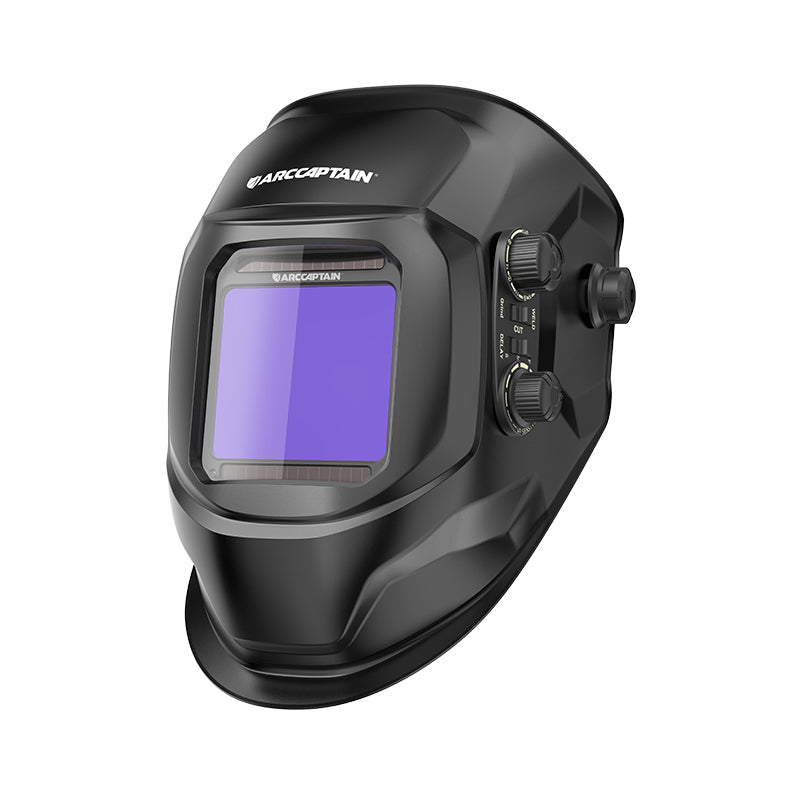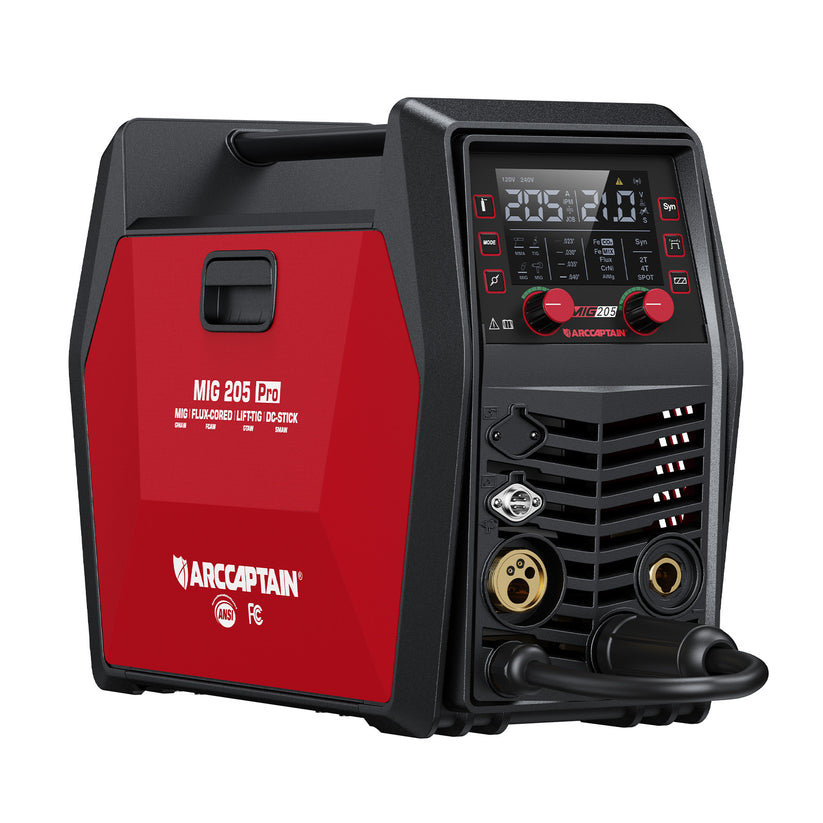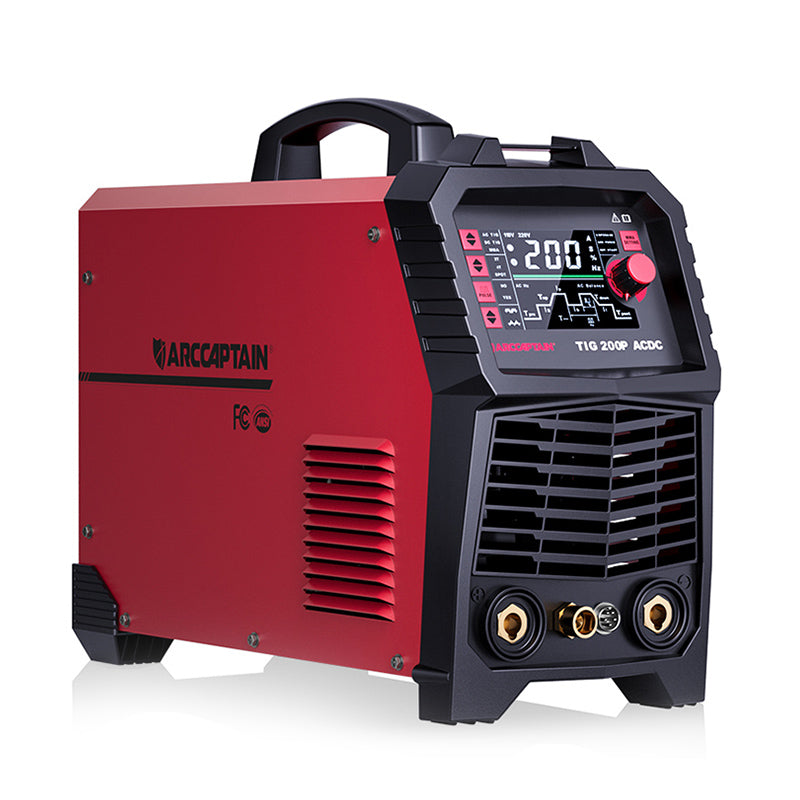
Thinking about becoming a welder? You might be asking, "Is welding hard to learn?" The truth is, welding isn't just a straightforward yes or no when it comes to difficulty. It's a skill that involves a lot of details and know-how. But don't let that intimidate you – with proper training and enough practice, anyone can learn to weld.
Welding is all about fusing metal pieces together using heat and pressure. It's a skill used in many fields, from building skyscrapers and cars to creating stunning art pieces. There are several ways to weld, like MIG, TIG, and stick welding, each with its own unique techniques and challenges.
In this article, we'll dive into what makes welding complex and the skills you need to become good at it. Whether you're eyeing a career in welding or just want to pick up a new skill, you'll find some useful insights here about the world of welding.
What is Welding?
Welding is a process of joining two or more pieces of metal or thermoplastics together by heating the surfaces to their melting points and allowing them to cool and fuse together. It is a crucial process in various industries, including construction, manufacturing, and repair.
Types of Welding
There are several types of welding, each with its own advantages and disadvantages. Some common types of welding include:
-
TIG welding: This welding process uses a tungsten electrode to create an arc that melts the metal, and a separate filler material is used to join the pieces together. It is often used for precision work and produces high-quality, clean welds.
-
Stick welding: Also known as shielded metal arc welding (SMAW), this process uses a consumable electrode coated in flux to create an arc that melts the metal. It is a versatile process that can be used in a variety of settings, but it produces more spatter and requires more cleanup than other methods.
-
MIG welding: This process uses a wire electrode that is fed through a gun and melted to create the weld. It is a fast and efficient process that is commonly used in manufacturing and automotive repair.
-
Arc welding: This process uses an electric arc to melt the metal and join the pieces together. It is a versatile process that can be used in a variety of settings, but it requires a high level of skill and produces more spatter than other methods.
-
Gas welding: This process uses a flame to heat the metal and join the pieces together. It is a slower process that requires more skill, but it produces clean welds and is often used for decorative work.
What’s the Easiest Welding Type to Learn?
For most beginners, MIG welding is the easiest place to start. The wire feed system makes it simpler to control, and it’s more forgiving if your technique isn’t perfect.
Stick welding is also beginner‑friendly but can be messier, while TIG welding is the hardest to master because it requires more precision and coordination.
Welding Equipment Essentials
Welding requires specialized equipment, including:
-
Welding machine: This is the power source that provides the electricity needed to create the arc or flame.
-
Electrode holder or gun: This is the tool that holds the electrode or wire and delivers it to the workpiece.
-
Protective gear: This includes a welding helmet, gloves, and clothing that protects the welder from sparks and radiation.
Fundamentals of Welding Technique
Welding requires a high level of skill and knowledge to produce high-quality welds. Some fundamental techniques include:
-
Choosing the right welding method and equipment for the job.
-
Preparing the workpiece by cleaning and removing any rust or debris.
-
Positioning the workpiece and ensuring that it is secure.
-
Maintaining a consistent arc length or flame distance.
-
Controlling the speed and angle of the weld.
What Metals Are Best for Beginners?
Not all metals are equally easy to weld:
- Best to Start With: Mild steel – affordable, widely available, and very forgiving.
- Manageable With Practice: Stainless steel and aluminum – doable but require more control.
- Harder for Beginners: Cast iron, copper, and certain alloys – these need advanced techniques and are best avoided until you have more experience.
Is Welding Easy or Hard to Learn?
Welding can be both easy and hard to learn:
-
Welding is Easy:
- Basic welding skills can be learned fairly quickly.
- With the right training and tools, beginners can start simple welding tasks in a short time.
-
Welding is Hard:
- Mastering welding takes much longer. It requires practice and experience.
- Understanding complex techniques and handling different materials add to the challenge.
In summary, you can pick up the basics of welding relatively easily, but becoming an expert welder takes time, practice, and dedication.
Factors That Make Welding Challenging
Welding is a complex process that requires skill, patience, and attention to detail. Despite its importance in various industries, welding is considered a challenging task due to several factors.
In this section, we will discuss the aspects of welding that can be challenging and the unique difficulties associated with different types of welding.
Physical and Technical Difficulties
Welding involves working with high temperatures, intense light, and hazardous fumes, which can pose physical challenges to the welder.
Welders must wear appropriate protective gear, such as helmets, gloves, and clothing, to avoid burns, eye damage, and respiratory problems.
Moreover, welding requires technical skills and knowledge of various welding techniques, such as MIG, TIG, and Stick welding.
Welders must be able to read and interpret blueprints, understand welding symbols, and set up and maintain welding equipment.
They must also have a good understanding of metallurgy, heat transfer, and electricity to ensure the quality and safety of their work.
You May Shop

Large View Auto Darkening Welding Helmet 3.94"X3.66" Welding Helmet HSH-G999
$99.99 $59.99
See ProductCommon Mistakes and the Learning Curve in Welding
Learning to weld is a process that takes patience and hands-on practice. Every welder, even the most experienced professionals, makes mistakes along the way. Here are some common issues you might run into:
- Incomplete Welds: Sometimes, the weld does not fully join the metals. This usually occurs when the heat is too low, the travel speed is too fast, or the materials are not appropriately prepared.
- Porosity: Small holes or bubbles can appear in the weld, weakening it. This often comes from dirty surfaces, wrong gas settings, or poor technique.
- Distortion: Heat can make metal warp or bend out of shape. Not clamping pieces down, welding too quickly, or using excessive heat are common reasons for this.
Every welding process comes with its challenges:
- MIG Welding: You must control the wire feed speed and maintain a steady hand. If you use the wrong gas or settings, your weld can turn out weak or messy.
- TIG Welding: This one needs a lot of focus. You must keep your hand steady and use your foot to control the heat simultaneously. Clean metal and good coordination are essential for this task.
- Stick Welding: You need to handle the electrode properly and maintain a steady arc. It can be tricky to avoid sticking the rod or making the weld too rough.
Welding is not always easy. It takes time to develop your skills and learn how to correct mistakes.
Every type of welding has its own learning curve, but with practice and the right know-how, you can overcome these challenges and make strong, clean welds that pass inspection.
Just remember, everyone starts somewhere, so don’t get discouraged if your first welds are not perfect.
The Learning Process in Welding
If you're new to welding and wan to learn how to weld, here's what you should know – it's a skill that takes time and patience to get good at. But don't worry, with the right attitude and effort, you can learn it!
-
Learn the Techniques:
- Start by understanding different types of welding like MIG, TIG, Stick Welder, and Flux-Cored.
- Each one has its pros and cons, and you'll want to pick the right one for what you want to make.
-
Practice Regularly:
- Keep practicing! Go to welding school and start with easy projects and slowly try harder ones. Welding needs a lot of practice.
- This helps build your confidence and skills.
-
It Takes Time:
- Remember, becoming good at welding doesn't happen overnight. Mistakes are part of learning.
- You'll get better the more you do it, as your hands and eyes learn the craft.
-
Stay Safe:
- Welding can be hot and smoky, so always wear the right safety gear.
- Work in a place with good air flow to stay safe from fumes.
In short, learning to weld is all about sticking with it, practicing a lot, and being safe. With dedication and time, you'll be able to handle more complicated welding jobs with ease.
What Safety Tips Should Beginners Know?
Safety should always come first when learning welding:
- Wear a helmet, gloves, and fire‑resistant clothing.
- Work in a space with good ventilation to avoid harmful fumes.
- Keep flammable items away and have a fire extinguisher nearby.
- Never look at the arc without proper eye protection, even for a second.
By starting with safe habits, you’ll protect yourself and make learning much smoother.
Essential Skills for Successful Welding
As with any profession, there are certain skills and qualities that are essential for success in welding. Whether you are an entry-level welder just starting out or an experienced welder looking to take your career to the next level, here are some key skills and qualities that you should possess:
Welding Jobs and Opportunities
One of the most important skills for successful welding is the ability to find and secure welding jobs and opportunities. This means building a strong professional network, staying up-to-date with industry trends and developments, and being willing to take on new challenges and projects.
Building a Professional Network
Another essential skill for successful welding is the ability to build and maintain a strong professional network. This means cultivating relationships with other welders, industry professionals, and potential clients and employers, as well as staying connected through social media, industry events, and other networking opportunities.
Continuing Education and Growth
Finally, successful welders must be committed to continuing education and growth. This means staying up-to-date with the latest welding techniques and technologies, as well as seeking out opportunities for professional development and training. Whether through apprenticeships, workshops, or other educational programs, a commitment to ongoing learning is essential for success in the welding industry.
In addition to these key skills and qualities, successful welders must also possess a strong work ethic, attention to detail, and a commitment to safety and quality. By developing these essential skills and qualities, you can build a successful and rewarding career in welding.
How to Overcome Challenges in Welding
Welding is a skill that requires practice, patience, and attention to detail. While it may seem difficult at first, there are ways to overcome the challenges that come with welding. Here are some tips to help you become a better welder:
1. Get Proper Welding Training and Welding Course
One of the most important things you can do to overcome the challenges in welding is to get proper training about. Welding program and training will help you learn the correct techniques and safety procedures, as well as give you a better understanding of the equipment you'll be using. Look for welding classes or apprenticeships in your area to get started.
2. Practice, Practice, Practice
Welding is a skill that requires practice to master. Take advantage of any opportunity you have to practice your welding skills. Whether it's in a class, on the job, or in your own garage, the more you practice, the better you'll become.
3. Learn from Your Mistakes
Mistakes are a natural part of the learning process. When you make a mistake, take the time to figure out what went wrong and how you can avoid it in the future. Learning from your mistakes will help you become a better welder and avoid making the same mistakes again.
4. Stay Up-to-Date on the Latest Techniques and Equipment
Welding technology is constantly evolving, so it's important to stay up-to-date on the latest techniques and equipment. Attend workshops, read industry publications, and talk to other welders to learn about new techniques and equipment that can help you improve your skills.
5. Take Care of Yourself
Welding can be a physically demanding job, so it's important to take care of yourself. Make sure you're wearing the proper safety gear, taking breaks when needed, and staying hydrated. Taking care of yourself will help you stay focused and alert, which will in turn help you overcome the challenges of welding.
By following these tips, you can overcome the challenges of welding and become a skilled welder. Remember, practice and continuous learning are key to mastering this skill.
Conclusion
Welding is an essential skill in industries from construction to automotive repair. It can be challenging at first, but with the right training, practice, and equipment, anyone can learn it.
For more helpful guides and tips, visit Arccaptain’s welding resources. When you’re ready to get started, shop Arccaptain’s high quality welding machines and safety gear to make learning easier and welding safer.
Check Related Products

Arccaptain MIG205 Pro Gas MIG Welder Stainless Steel Multi Process Machine
$799.99 $499.99
See Product
FAQs: Is Welding Hard to Learn?
Is welding a stressful job?
Welding can be a stressful job, especially for those who are new to the profession. It requires a great deal of attention to detail and precision, as well as the ability to work in challenging environments. However, with practice and experience, many welders find that the stress decreases over time.
What is the hardest part of welding?
The hardest part of welding can vary depending on the individual and the type of welding being done. Some welders find that maintaining a steady hand and controlling the welding arc can be challenging, while others may struggle with the physical demands of the job. Overall, welding requires a combination of technical skill and physical endurance.
Does welding require math?
Welding does require some basic math skills, such as the ability to measure angles and calculate dimensions. However, the math involved in welding is typically straightforward and can be learned with practice. Many welders use calculators or computer programs to assist with more complex calculations.
Is welding hard on the body?
Welding can be hard on the body, particularly for those who work in the profession for extended periods of time. The physical demands of welding can lead to back pain, shoulder pain, and other musculoskeletal issues. Additionally, exposure to welding fumes and other hazards can pose health risks if proper safety measures are not taken. However, with proper training, equipment, and safety protocols, many welders are able to work safely and comfortably for many years.


